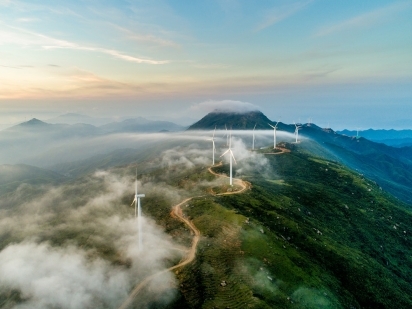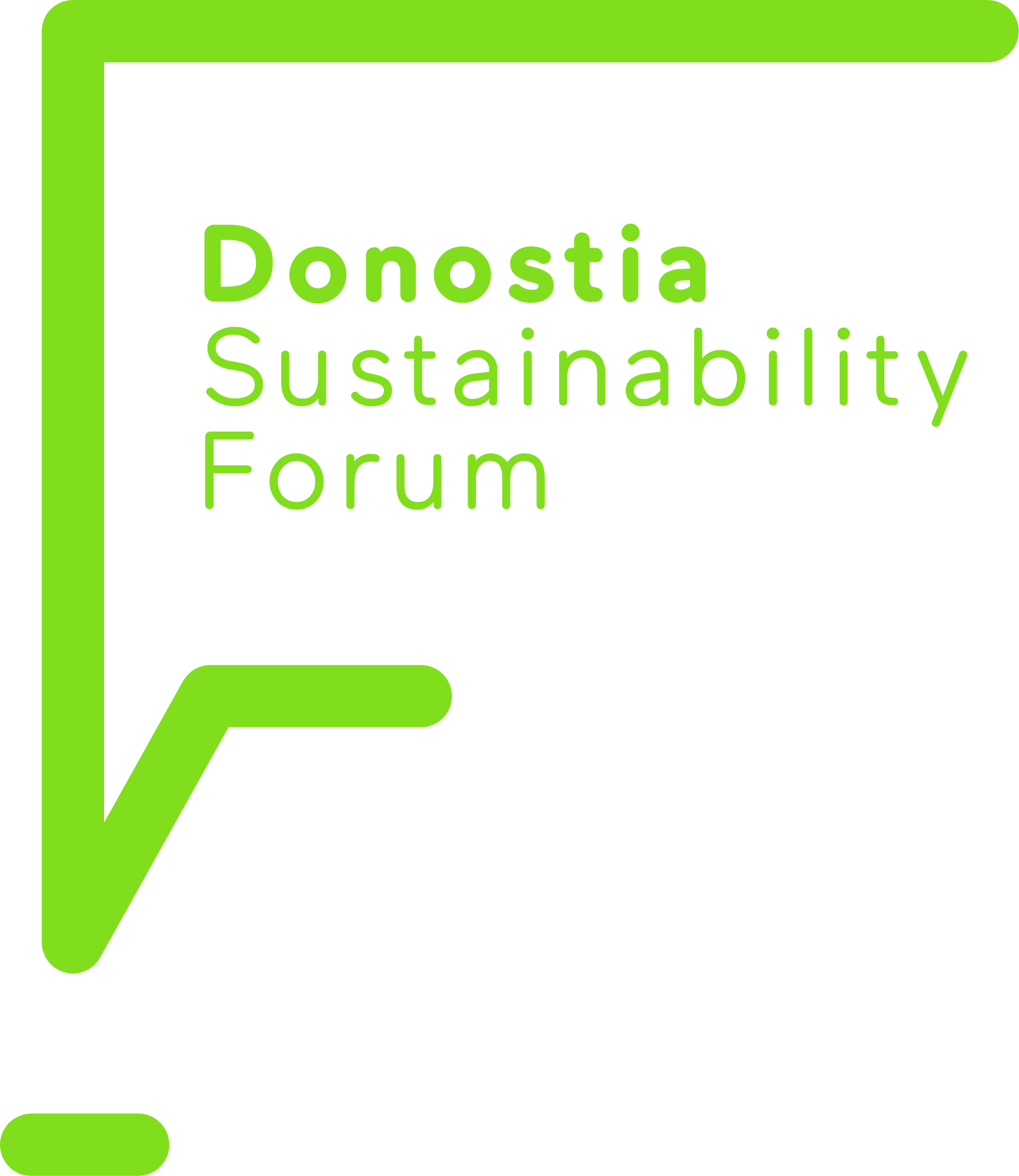The second edition of the DSF presents content about the overall health of the planet through 5 sustainability challenges
<p> After the excellent response to the first edition of the <a href="http://www.donostiasustainabilityforum.eus/en/news/donostia-sustainability-forum-closes-cycle-open-conferences-internationally-renowned-scientists">Donostia Sustainability Forum in 2020</a>, the 2021 edition of the Forum presents content to be offered over the year in hybrid form (physical and live online).</p>

Through the Donostia Sustainability Forum the UPV/EHU Summer Courses confront the challenge of sustainability, and to do this they have the support of the BBVA foundation, the Basque Government department of economic development, sustainability and the environment through Ihobe, the Gipuzkoa provincial department of Environment and Water Engineering and Donostia/San Sebastián city council.
This year the content of the Forum is organised around the following areas:
Ecosystems and natural resources
In this area there are 9 courses, revolving around the health of rural and urban landscapes. There will be discussion of initiatives and strategies for sustainable management of the rural environment and forests; nature-based solutions to regenerate polluted soil will be presented, as will action plans to undertake reconstruction of cities on the basis of climate justice and fairness for green design and to progress towards new, more sustainable urban models. Regional and European strategies aiming at sustainable oceans and the blue economy will be discussed as a field of opportunities for sustainable growth and competitiveness. Also considered will be the interaction between fields as diverse as art, geology and ecology through the work of Cristina Iglesias, and the figure of Eduardo Chillida will be reappraised from a sustainability standpoint to create new narratives about his work.
Food, health and local development
There are 10 courses on offer that will provide a space for discussion to bring together concepts like food, health and sustainability. Food as a lever for a healthy population and planetary sustainability, underlining the close links between the quality of the environment in which we live and quality of life and well-being for people. Attention will be devoted to environmental issues with a potential impact on health that call for the involvement of both institutions and the public to generate proposals for consensus. There will be analysis of sustainability, safety and marketing strategies for natural products, bringing them to consumers and agents in the food chain to open up new ways of attaching value to local produce and community culture in neighbourhoods and small towns and villages.
Energy, mobility and cities
Transport consumes a high percentage of energy and is responsible for a significant part of greenhouse gas emissions. There will be 9 courses on offer in this inter-related context of energy, mobility and cities, in which the European Green Deal is at the centre of the steps proposed to turn round the climate crisis and speed up the energy transition. In this area, the hydrogen market, which has yet to be defined, offers opportunities in the mobility sector and these will be analysed. Also with the aim of reducing emissions of greenhouse gases, the transformation under way in architecture and the building industry will be analysed and the need for and keys to circularity in town planning will be presented, considering sustainability in terms of both energy and materials. In this respect, one of the topics dealt with will be how to undertake the rehabilitation of buildings in such a way as to emphasise the relationship between forestry policy, building and the revival of wood.
Business sustainability and the circular economy
The traditional way of measuring the performance of a business concentrates on monetary value, but one of the aims of this thematic block of 10 courses will be to consider a broader concept of value, one that extends to social and environmental value. The aim will be to foster training processes in which nature is seen as the model to generate new products and services based on strategies of eco-innovation, aligning business innovation with the SDGs. Thus, sustainable development will be presented as a business opportunity to generate value and boost financial returns, for example in the fashion industry. There will also be analysis of how digitalisation can act as a pillar of the circular economy, promoting the collaborative economy as part of the circular economy and contributing to a reduced carbon footprint and progress towards climate goals of decarbonisation.
Environmental communication and education
After a year marked by the pandemic, a new strategy for sustainable growth is needed, and to undertake this transition calls for good environmental communication and education, approached in an informative way in 8 of the courses. The current environment of uncertainty forces us to rethink our learning spaces in a flexible manner, adopting new options and new teaching and communication strategies to enable us to adapt to the circumstances. The ecological, social and educational importance of environmental communication will be highlighted, encouraging reflection about the transformational potential of environmental education. The relationship between children and young people's literature and the SDGs will be explored, together with their educational potential for raising awareness of caring for the environment and changing habits towards more sustainable behaviour.
As well as the courses, a programme of free open days has been set up, to run throughout the year.
The first of these will be on May 6th with Jaime Zufía (Coordinator of the Department of Efficient and Sustainable Processes at AZTI) who will star in a dialogue that will allow to visualize different alternatives to achieve more sustainable models. (more info)
Thanks to the BBVA foundation, this year's open days will feature a Frontiers of Knowledge prize and a Biophilia prize, as well as other eminent figures in the sustainability field who will be sharing their thoughts.
The full programme will be published closer to the dates of the activities.
All this content will be posted on the DSF platform: http://www.donostiasustainabilityforum.eus.



